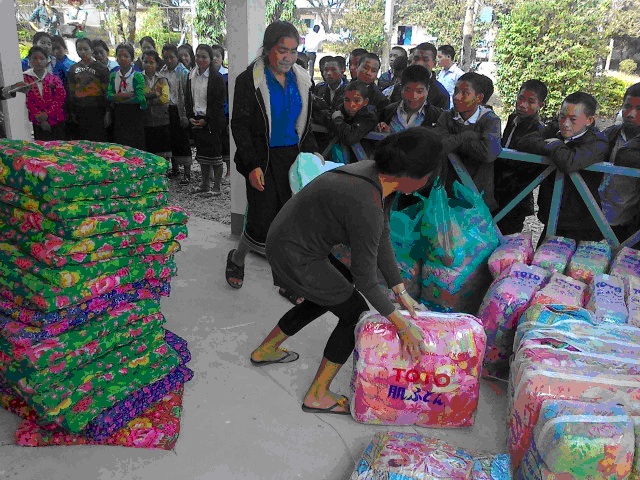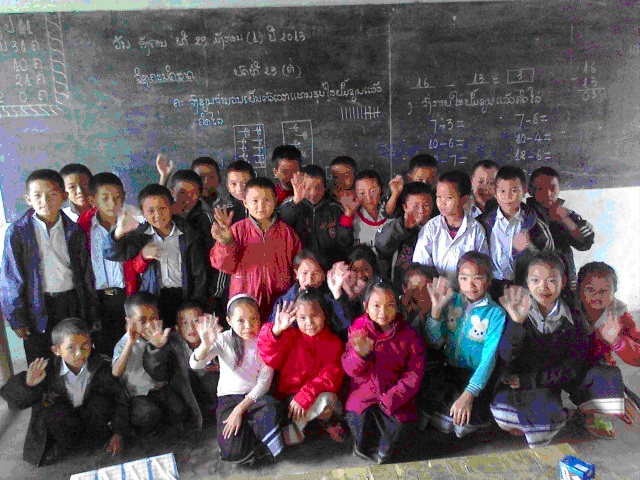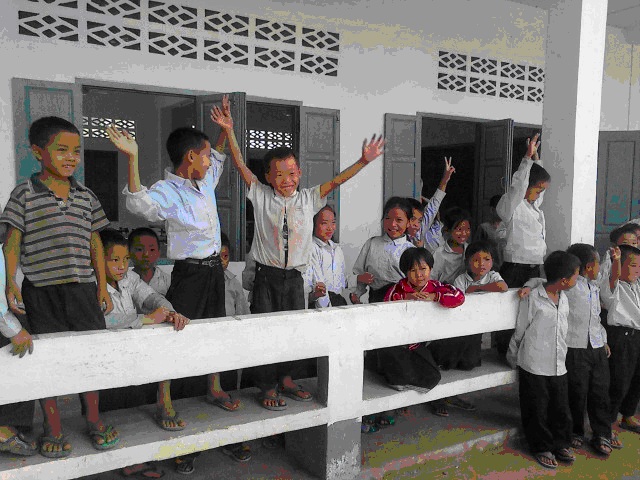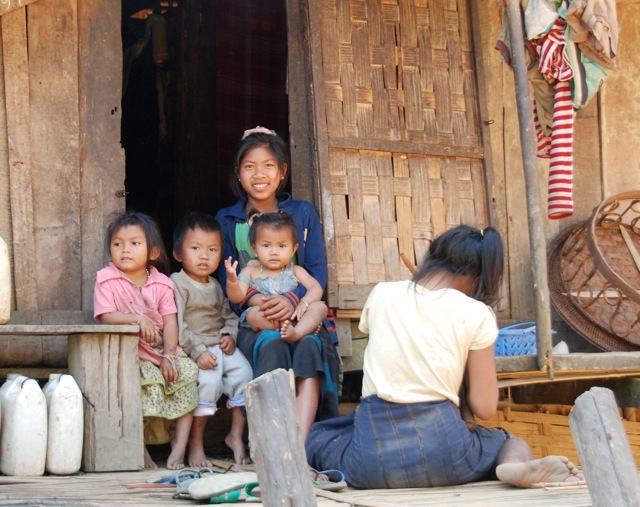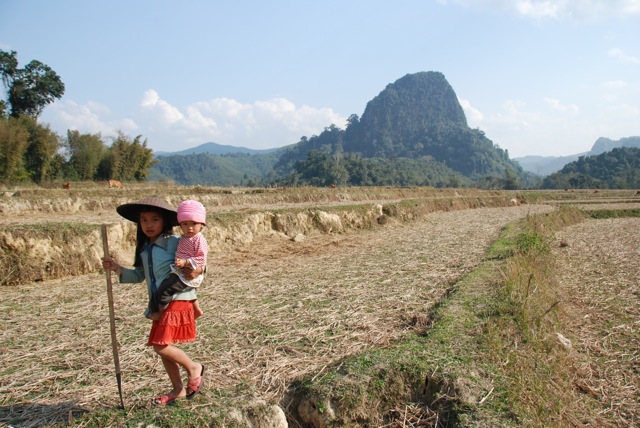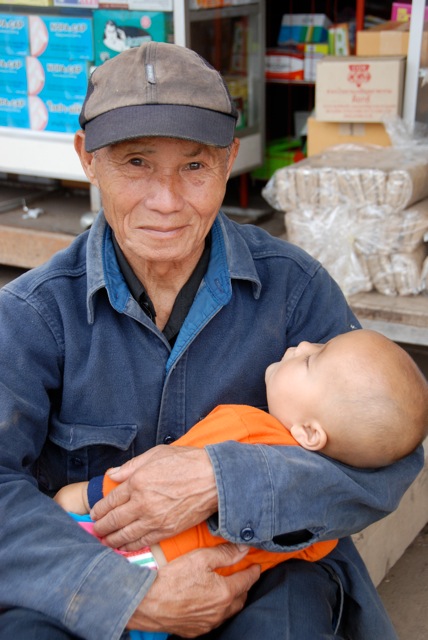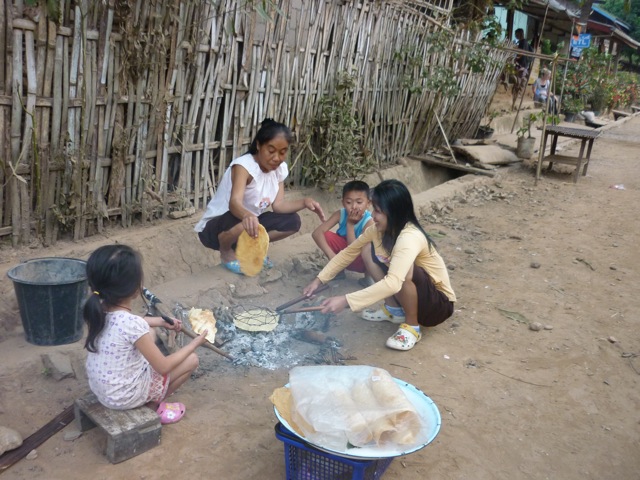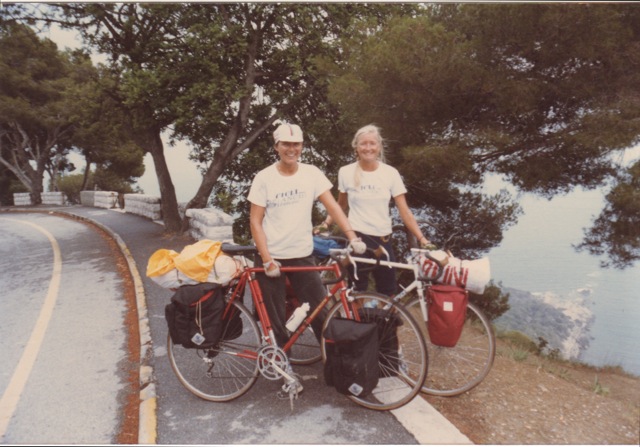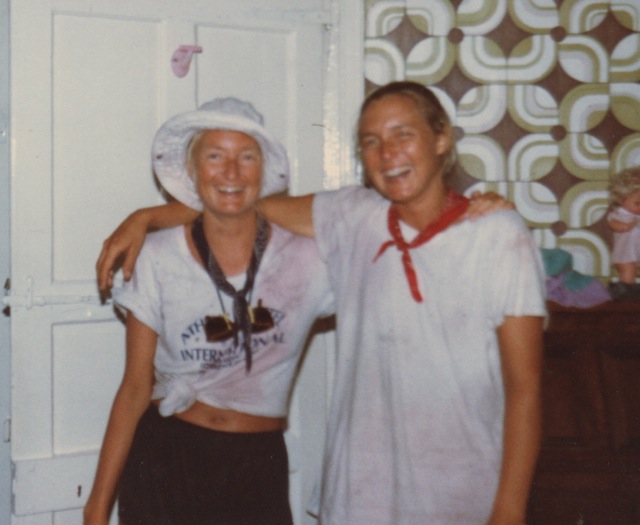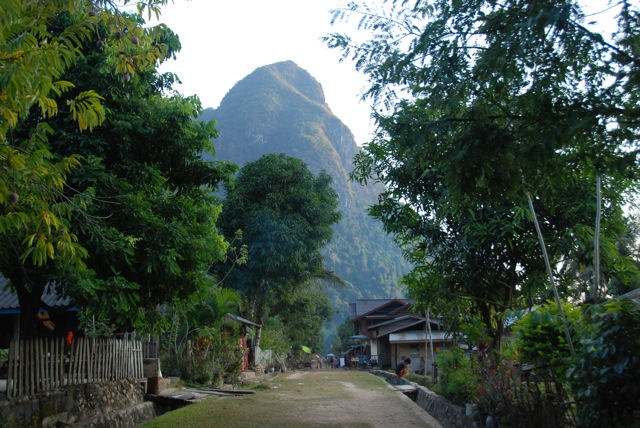Orphanage update February 2013.
Greetings from beautiful Luang Prabang.
The LPB orphanage is still the wonderous place that many of you will remember and with almost 600 children, we are now at full capacity. There have been several projects come to fruition in the last 6 months that have improved conditions considerably at the orphanage.
This year will be a very busy year and although Luang Prabang will always be my heartfelt priority, I have now started support at Numbuk and Suan Luang orphanage/ethnic schools.
We now provide support for over 1,800 children in orphanages and villages around Luang Prabang.
My staff giving out new mattresses and blankets
Last month, I opened the orphanage’s new art school. We built this quite quickly and the goal was to provide a room where all children can go after school to paint and draw. We have seats for 30 children and we supply the paper, paint and pencils. The room has been a big hit and has provided a much needed creative outlet for the children.
After some delays, our library has been completed with bookcases, chairs and tables. It was delayed as I needed to relocate the computer room, which is now complete. The school now has a separate Library and computer room and provides great learning opportunities for the children.
Last week I replaced the old, broken swings and we now have a set of new swings for the girls and a new set for the boys.
I have started a new nutritional program for the 150 youngest children at the orphanage. I now supply milk, 2 times per week for each of these children As before, we provide eggs, meat and fruit on an ongoing basis and I believe we now have a very balanced diet suitable for the children to grow up healthily.
Working with the kids
I have installed 3 more water filter systems around the orphanage and we now have four in total. Each child now has access to clean drinking water and we hope this starts to lower the incidence of stomach problems.
We had 2 doctors visit in November and saw almost 400 children and we are now collating a substantial medical data base. The general health of the children is good but we saw many female health issues and lots of ear infections. I am addressing female health through education, and girls now know they can be treated easily for typical female infections. I plan to start a monthly ear clinic in order to address the high incidence of ear infections.
Youngest class at the orphanage
I will maintain all these programs in the future as well as the dental and hygiene programs. I hope that if funding is available we can make the same positive changes at Suan Luang and Numbuk.
Suan Luang and Numbuk are orphanage/ethnic schools that are home to both orphans and very poor children.
In the poorest areas of Laos, even children with parents seldom have enough food to live on. Most are from very poor farming areas and live in very desperate conditions. Suan Luang and Numbuk provide a home and school for many of these children.
Suan Luang has 630 children from 9 to 19 years old and is just 30 minutes from Luang Prabang. Numbuk has over 400 children in the same age range and is situated 2.5 hours from Luang Prabang.
I am presently building a 36 metre dormitory at Numbuk. Over the next two years, the government wants to take in another 180 children. The new dormitory will allow for 90 more children to arrive in September this year and I plan to build 2 more dormitories in the next year to accommodate the extra 90 children due to arrive in September 2014. There are also 2 dormitories at Suan Luang that are close to collapse and they will need to be replaced when funding is available.
Conditions at both places are very poor . The quality of food is appalling with only 5 kg of meat (virtually all fat) to share between all the students and the vegetables supplied to both schools are dry and the cheapest available. Rice is given with each meal but is also the lowest quality and is seldom cooked properly.
Previously there was no clean drinking water at either school so I have installed a series of water filters and tanks at both places so that the children can now drink clean water. I have also started a food program for 2 meals per week at Numbuk and Suan Luang and we supply pork or fish, and eggs as well as fresh vegetables and herbs. I will provide a further two meals per week starting from April this year. This is a small step to help these children but we have to be diligent when initiating programs so that we can ensure that a suitable relationship evolves with the directors and the students before expanding these programs.
Most clothing donations are now going to Numbuk and Suan Luang as most children just have filthy, old clothes. I am expecting a container of clothes from Canada that has been organized by my friend and we hope this will solve the clothing issue in the short term.
New kids in front of the new school
Scholarships. Presently we sponsor about 70 orphanage students to university. This is a wonderful program as it offers each student their only chance to escape poverty. Without a scholarship, most students are forced to return to their villages, unemployed and live in very difficult conditions.
This year we have 45 graduates from the LPB orphanage and we hope to offer each a scholarship to university. The cost of a scholarship is $US650 for a year so if you know anyone who would be interested to support a student, please get them to contact me.
At Suan Luang, we have 130 children graduating in June. All will have no option but to return to their poor villages and try to find work. I want to offer the brightest students a working scholarship where I support them in LPB long enough for them to find work so that they can work their way through college. The working scholarship will cost $350 for each student and will pay for accommodation, 2 months salary and their university fees. This year I have a generous sponsor from Montpelier who has agreed to match every scholarship that I can get so if I can find 40 people to support a scholarship, then Montpelier will also sponsor 40 scholarships, for example. We have a chance to change many students lives for the better through this program.
My contact for this program is andrewb@lotusvillalaos.com.
Thank you all for your wonderful support to date. My projects are growing quickly and we are making a huge difference in the lives of many children and this can only happen with the support of very caring people.
Kind regards.
Andrew
